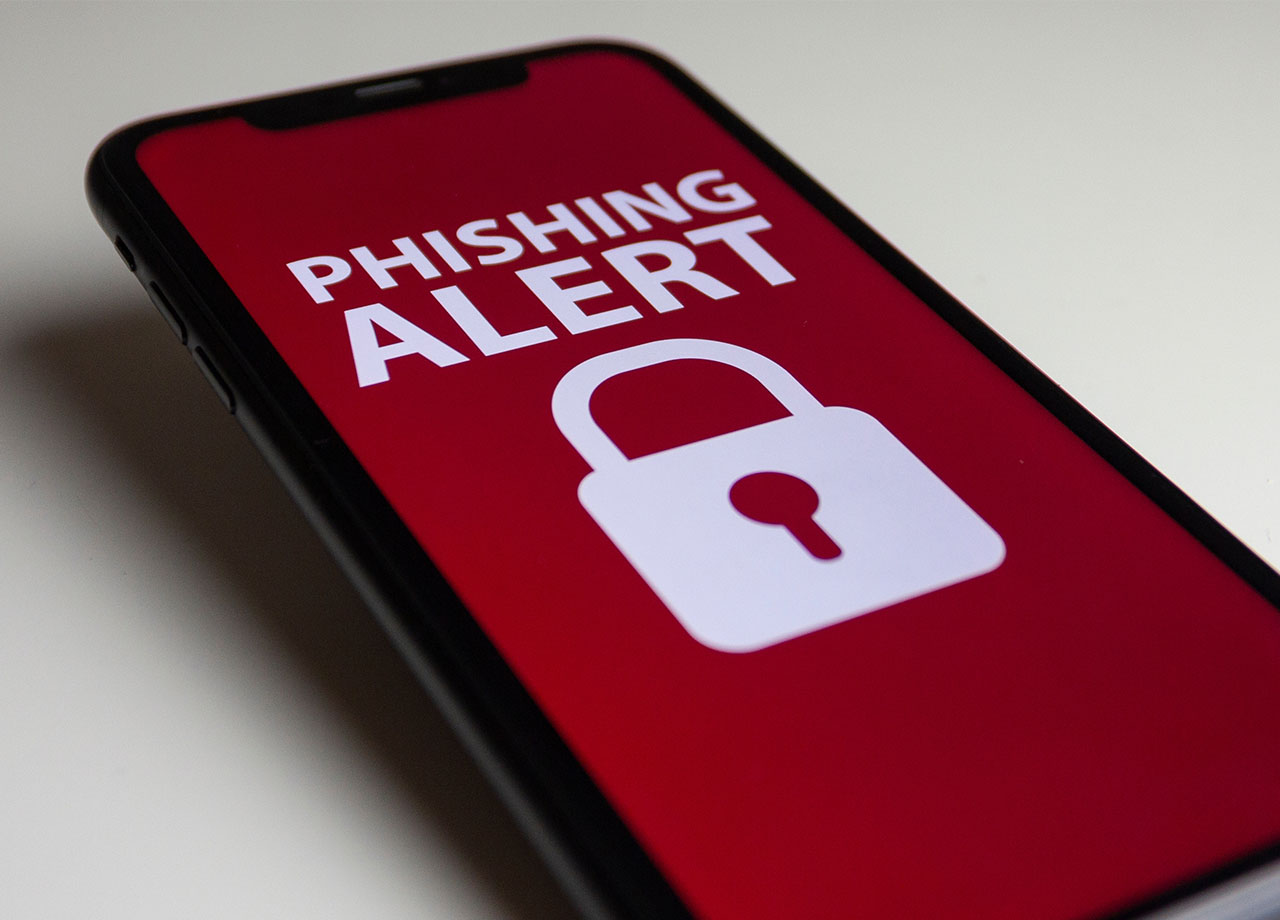
1. Apple ID Phishing Scam
The goal of Apple ID phishing scams is to steal your Apple ID credentials such as your username and password by pretending they are from Apple. These texts will come from people that claim they work for Apple. They’ll urge you to click on a link to resolve some kind of an issue. If you click on the link (remember: don’t) the website will look nearly identical to Apple. But here’s how you’ll know it’s a fake: the scammer will use threatening language, send emails from strange email addresses (often misspelled), and Apple will never ask you for your Apple ID password, credit card details, or security information through email, text, or phone.
2. “Your Phone is Infected” Scam
This tech support scam attempts to convince you that your phone is infected with malware. It can come in the form of a pop-up ad that urges you to download an antivirus program, a phone call from fake tech support, or even ransom requests. There will often be request for payments and a sense of urgency to act now — and click on links that can lead to your phone becoming infected with malware or spyware.
3. Fake App Update Scam
If a pop-up appears alerting you to an app’s need for an urgent update, ignore it. This scam redirects you to fake app stores and websites and then steals your personal information (like credit card info) and other data. You’ll know if your apps require updating by going to App Store > Updates.
4. Fake iCloud Storage Alert
So many of us are used to running out of storage space that it’s easy to fall for this scam, which pretends you’ve run out of iCloud storage space and encourages you to purchase more. Of course, you guessed it: you won’t be paying Apple for more storage, but will be lining the pockets of fraudsters. You can easily check how much iCloud Storage you have by going to Settings > [Your Name] > iCloud.
5. Prize Scams
“Congratulations — you won a million dollars! Click here to claim your prize!”
Sound familiar? The second you click on that link, it can infect your device with spyware or malware or request personal information from you that it then collects. These scams can appear in messages, pop-ups, and emails. We’re sorry to inform you: you didn’t win anything and should never click on anything sent in this format.


